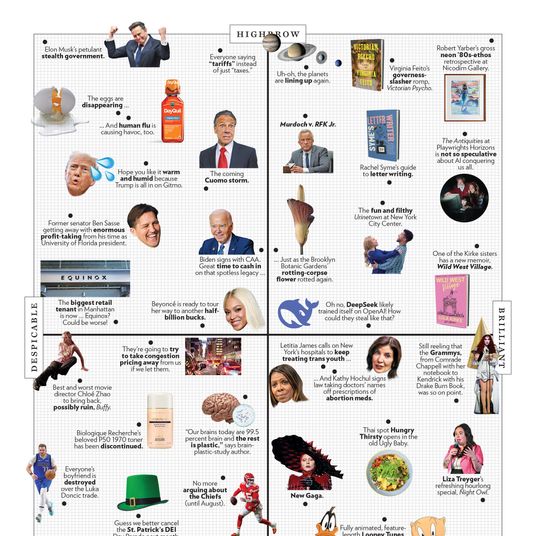
Mitt Romney has a well-deserved reputation as a flip-flopper, but there’s one position he’s never going to escape: He is really, really rich. As Republican strategist Steve Schmidt put it to the New York Times, Romney “cannot change his private equity wealth ‘any more than he can change the color of his eyes.’” That’s not strictly true, of course — he could always give it away! — but why would he want to? The candidate’s most recent cash-related gaffes (the mention of his wife’s modest Cadillac fleet, his apparently impressive rain-gear wardrobe) have made it perfectly clear that he’s comfortable with his comfortable life and doesn’t exactly see why everyone else isn’t.
As he reasoned at a town-hall meeting earlier this week, “If I were a doctor and I saw somebody who was obviously suffering from some condition, I would want to do something to help … Well, my experience is not in medicine. My experience is in business.” And that logic, it seems, is where the Romney campaign is looking to take the issue of their candidate’s many bank accounts. Explained adviser Kevin Madden to the to the Times, “The debates or discussions about his personal success aren’t relevant to the reasons he decided to run … The campaign will be successful as long as it aligns the reason he’s running, the economy, with voters’ main anxiety, which is that the economy is not living up to its full potential.”
It’s a little surprising that this hasn’t always been the strategy — it’s a much better idea than trying to convince the public that the life of a man worth over $200 million looks like that of the average person, especially when it comes to material possessions. Done right, Romney’s wealth should be able to act to his advantage, even in an economy like this one. After all, this is still America, and Americans still want to believe they can strike it rich — or at the very least, strike even. And, since Republicans balk at the idea of “handouts,” then surely they should warm to the idea of someone who can lead by example.
Of course, in order to truly make that point, Romney will have to overcome his other seemingly unchangeable quality: His struggle to give the impression that he actually cares about poor(er) people. Urged by a voter at the aforementioned town-hall meeting to “show the American people that you have a lot of heart and that you love Americans,” Romney gave it a shot, explaining that, while he could have just gone on living his “successful life off with my family and my kids enjoying our little circle,” he felt compelled to get his hands dirty on behalf of the American people: “It breaks my heart to think about families at the margin when gasoline prices go up like they are, when health care costs go up like they have, when food prices go up.”
Whether or not voters can be made to believe that Romney does, in fact, have a heart and that it is, in fact, breakable, has yet to be determined. On the other hand, why else would a guy who could just hang out with his NASCAR team-owning pals all day go to all this trouble?





























